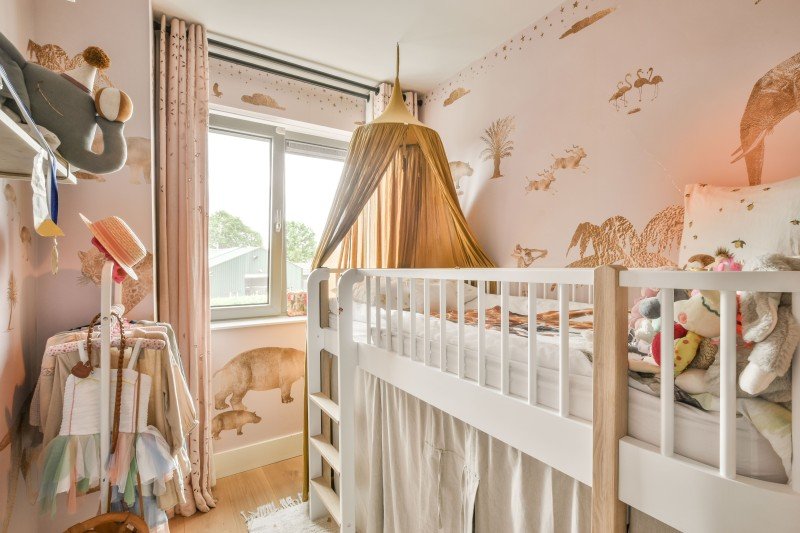
29
六月9 Lessons Your Parents Teach You About Bunk Beds For Kids

Bunk Beds for Kids: A Comprehensive Guide
Bunk beds have been a popular choice for kids's bed rooms for many years. They provide a space-saving service that makes the most of flooring area, provides fun climbing up choices, and is available in a range of styles that appeal to kids's creativities. This short article checks out the benefits, considerations, designs, and security features connected with bunk beds for Kids (octifor.synology.me).
Advantages of Bunk Beds
Bunk beds present multiple advantages that make them an appealing alternative for families. Here are some essential benefits:
Space Saving
- Bunk beds permit 2 or more children to share a room without sacrificing space for play or other activities.
Cost-Effective
- Getting a single bunk bed can be more affordable than buying 2 different beds.
Enjoyable Factor
- Kids often see bunk beds as an enjoyable place to sleep and play, promoting a sense of adventure.
Adaptability
- Bunk beds are available in different configurations, consisting of L-shaped, loft beds, and even convertible styles that can change as children grow.
Company
- Lots of bunk beds come with built-in storage alternatives, such as shelves and drawers, helping keep spaces arranged.
Key Considerations Before Purchasing
Before purchasing a bunk bed, it's vital to think about particular factors, such as:
Space Requirements
Procedure the space to ensure that there is enough vertical space, enabling appropriate headroom on the leading bunk.
Age of Your Children
Consider their age and maturity. Numerous producers advise that children under 6 should not oversleep the leading bunk due to security concerns.
Weight Limit
It's essential to check the weight limits of the bunk bed for both the top and bottom bunks to ensure safety.
Style Preferences
Pick a design that matches the room's decoration and the kids's choices.
Material
Bunk beds are available in different materials, such as wood or metal. Each has its benefits and disadvantages relating to sturdiness and visual appeals.
Designs of Bunk Beds
Bunk beds are available in numerous designs to fit various looks and functional needs. Here's a list of some popular styles:
Standard Bunk Beds
Traditional stacked beds that consist of two beds built one above the other.
Loft Beds
A bed raised high off the ground, with space below for a desk, play location, or storage.
L-Shaped Bunk Beds
Two beds arranged in an L-shape, supplying more flooring space and an unique style element.
Twin Over Full Bunk Beds
These choices include a twin bed on top and a full-sized bed on the bottom, accommodating older children or adults.
Triple Bunk Beds
Developed for three children, these beds generally include three stacked beds, perfect for bigger households.
Security Features to Consider
Guaranteeing the safety of kids using bunk beds is critical. Here are some security includes to try to find before making a purchase:
Guardrails
A bunk bed ought to include tough guardrails on the top bunk to avoid unexpected falls.
Ladders
Make sure that the ladder is securely attached and simple for kids to navigate safely.
Stability
Try to find bunk beds with lower centers of gravity and broad bases to offer better stability.
Quality Construction
Pick beds made from resilient products that satisfy safety standards, such as ASTM (American Society for Testing and Materials) guidelines.
FAQs About Bunk Beds
1. What age is proper for a top bunk?Generally, children aged six and older are advised for oversleeping the leading bunk. 2. Are bunk beds safe for toddlers?Most experts encourage against
positioning toddlers in the leading bunk due to the
risk of falls and inappropriate ladder usage. 3. Can bunk beds be separated?Many bunk beds are developed to be separated into two standalone beds,
offering included versatility as children grow
. 4. How do I keep a bunk bed?Regularly check for loose screws and use, keep mattresses clean, and ensure that the bunk bed is
stable to lengthen its life-span. 5.
Are there any special bed mattress requirements for bunk beds?Yes, mattresses for bunk beds must fit comfortably without leaving gaps. Typically, thinner bed mattress
(around 6 to 8 inches )are suggested for top bunks for security. Bunk beds offer a flexible, practical, and fun solution for children's sleeping plans, maximizing space while accommodating numerous kids in one room. By thinking about the crucial aspects
of style, security, and space, moms and dads can make an informed decision when picking the best bunk bed for their children's requirements. With the best care and upkeep, a bunk bed can be a cherished piece of furnishings that offers years of usage and satisfaction for children. Summary Table of Bunk Bed Styles Design Description Best For Requirement Bunk Beds Classic style, 2 stacked beds Smaller spaces Loft Beds Elevated bed with open space below Study or play areas L-Shaped Bunk Beds Two beds in an L-shape

Reviews